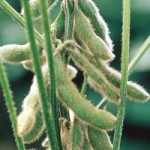Conservation Policy Update 2007
 There is growing global awareness of the ever-increasing demand for medicinal and aromatic plants and of the need to ensure they are properly protected, especially vulnerable and endangered species. Used for thousands of years to promote well-being, they are an important health and economic resource for humanity. The great majority is collected in the wild and provides valuable income for rural households, especially in developing countries. However, unsustainable collection is commonly practised, which not only threatens the survival of the species, but also the livelihoods that depend on them.
There is growing global awareness of the ever-increasing demand for medicinal and aromatic plants and of the need to ensure they are properly protected, especially vulnerable and endangered species. Used for thousands of years to promote well-being, they are an important health and economic resource for humanity. The great majority is collected in the wild and provides valuable income for rural households, especially in developing countries. However, unsustainable collection is commonly practised, which not only threatens the survival of the species, but also the livelihoods that depend on them.
It is estimated that 50,000 – 70,000 plant species are used in traditional and modern medicine throughout the world. More than 400,000 tonnes of medicinal and aromatic plants are traded annually, with around 80% of the species harvested from the wild. Many species are in danger of over-exploitation and even extinction through uncontrolled wild harvesting, over-collection and habitat loss.
Soaring demand
Global demand for these plants has rocketed in the past decade or so and is constantly increasing. It has been estimated that 80% of the world’s population relies on plants and herbs for their primary healthcare needs because they simply cannot afford western medicines. In their September/October 2007 issue, Organic Monitor (www.organicmonitor.com) reports that global sales of natural and organic cosmetics, estimated at some US$7 billion, are soaring and that North America and Europe are the two engines of growth comprising the bulk of the US$1 billion sales increase. With the resulting additional demand for aromatic plants and essential oils, it is even more important that they are obtained from ethical and sustainable sources and that manufacturers and consumers alike are aware of the impact this could have on the survival of plant species and people involved in their production.
To address this issue, the Medicinal Plant Specialist Group (MPSG) of the IUCN (The World Conservation Union) – the world’s largest and most important conservation network – has published a new international standard based on the recognition that there is currently no international standard for wild harvesting.
Organically certified plants are already covered by international standards but non-organic and wild harvested plants are not. These standards go a long way to meeting the urgent need to provide specific guidance for industry, resource managers, collectors and other stakeholders on sustainable practices. Drawn up following extensive consultation with plant experts and the herbal products industry world-wide they promote appropriate management of wild plant populations to ensure plants used in medicine and cosmetics are not over-exploited.
ATC adopts new policy
The ATC’s PR Chairman, Susan Curtis, is a member of the IUCN Medicinal Plant Specialist Group and with her guidance, ATC members adopted the new standard at their AGM in September, 2007. This will further strengthen the ATC’s policy on the conservation of plants used to produce essential oils for aromatherapy, adopted in 2004 and set out here; ATC Conservation Policy 2004.
Some ATC members are already addressing these issues by supporting community projects in developing countries, offering financial support and managing their exports giving indigenous farmers the opportunity of presenting their products to the international market. Others are UK farmers, growers and producers who grow plants as alternative crops and distil them for essential oils. All ATC members are aware of the issues involved in the conservation and sustainability of medicinal and aromatic plants and how important they are.
Although there is relatively little cultivation of these plants in the UK at present, with the likely climate change in the future it may be possible to grow more Mediterranean type plants for essential oils here in the UK to swell the production of these much needed plants. It could also encourage more farmers to diversify into these alternative crops.
ATC members have now started a policy that will build the foundation for a long-term solution, since there is no quick fix. It is hoped that, in undertaking proactively to highlight the issues of conservation and working with all the relevant organisations, the ATC can make a real difference to preserving threatened plant species, supporting underprivileged communities with good prices and working towards a truly sustainable world. The challenges are enormous, but the rewards would be truly global.










